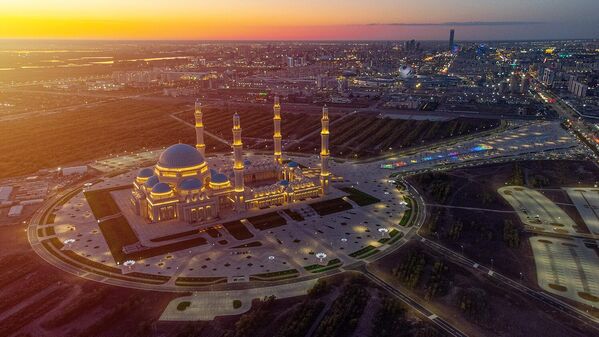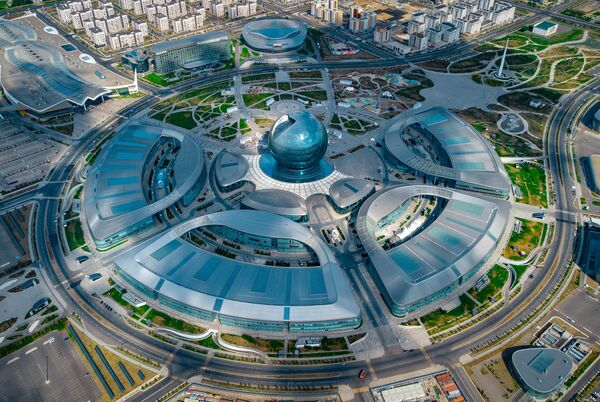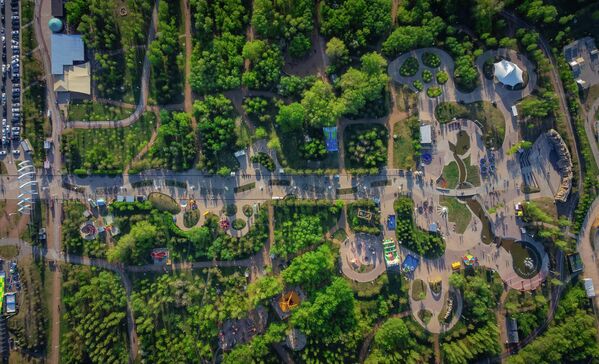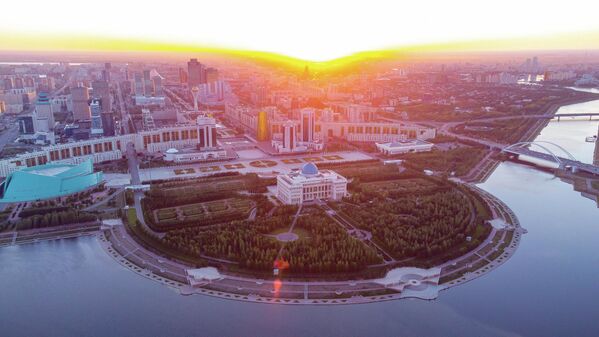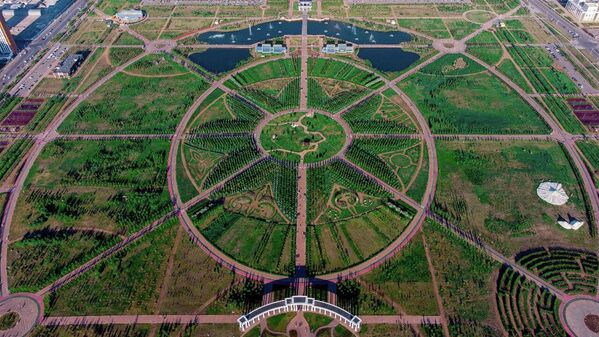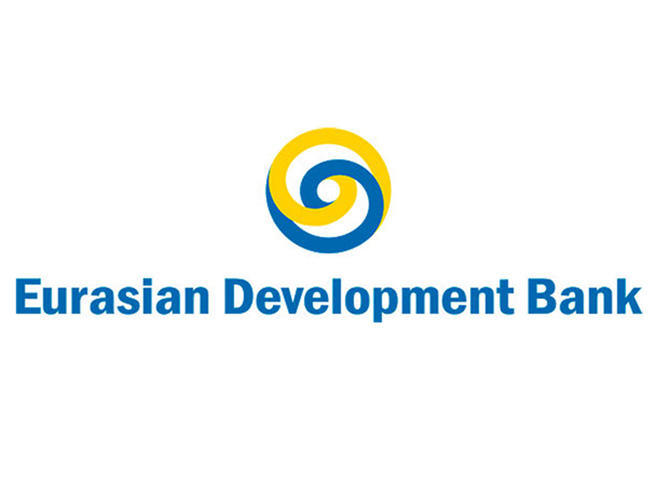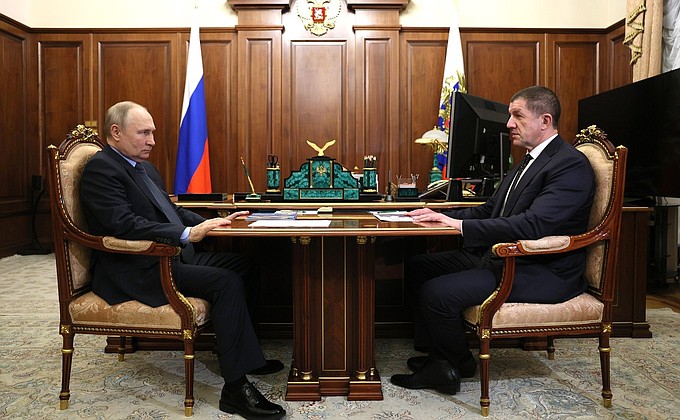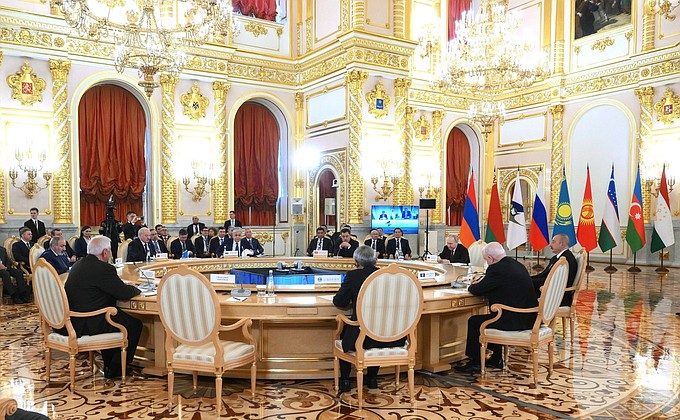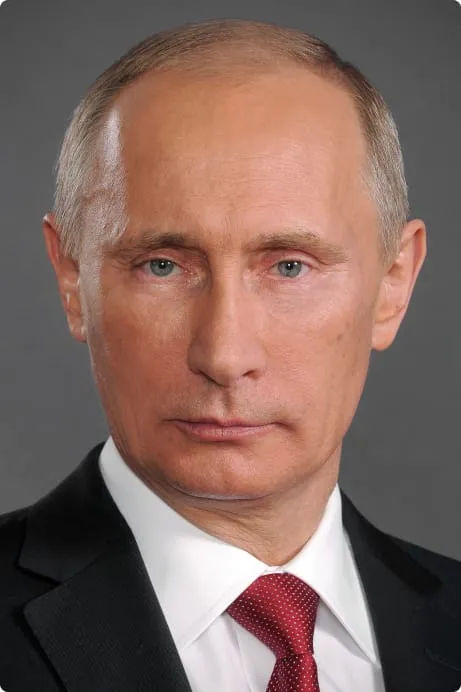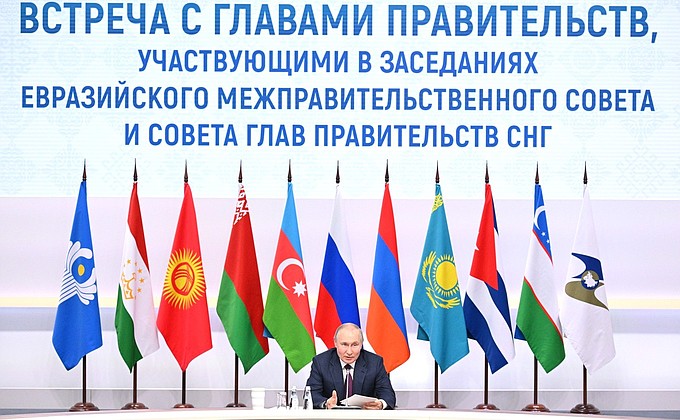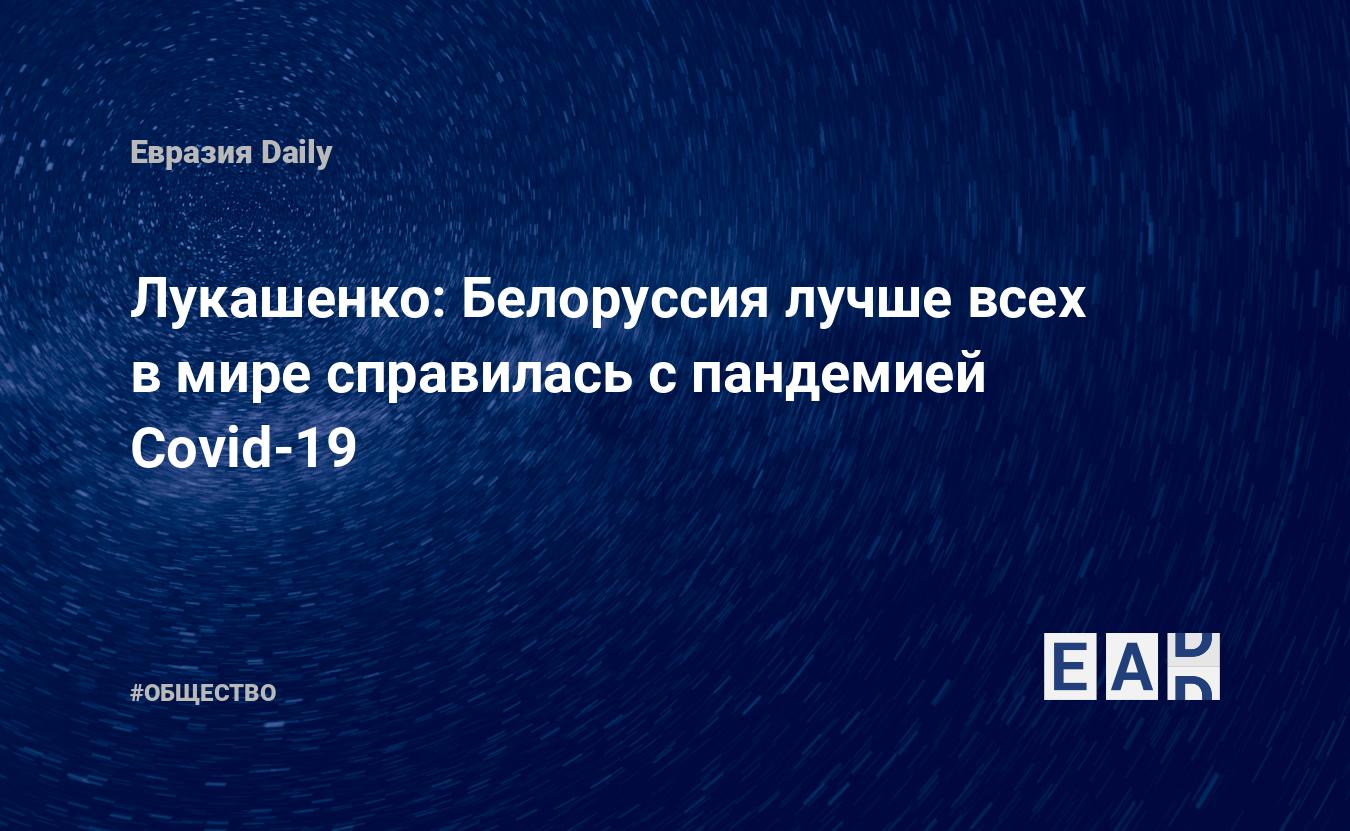Lalas
Star
- Joined
- Nov 8, 2022
- Messages
- 1,826
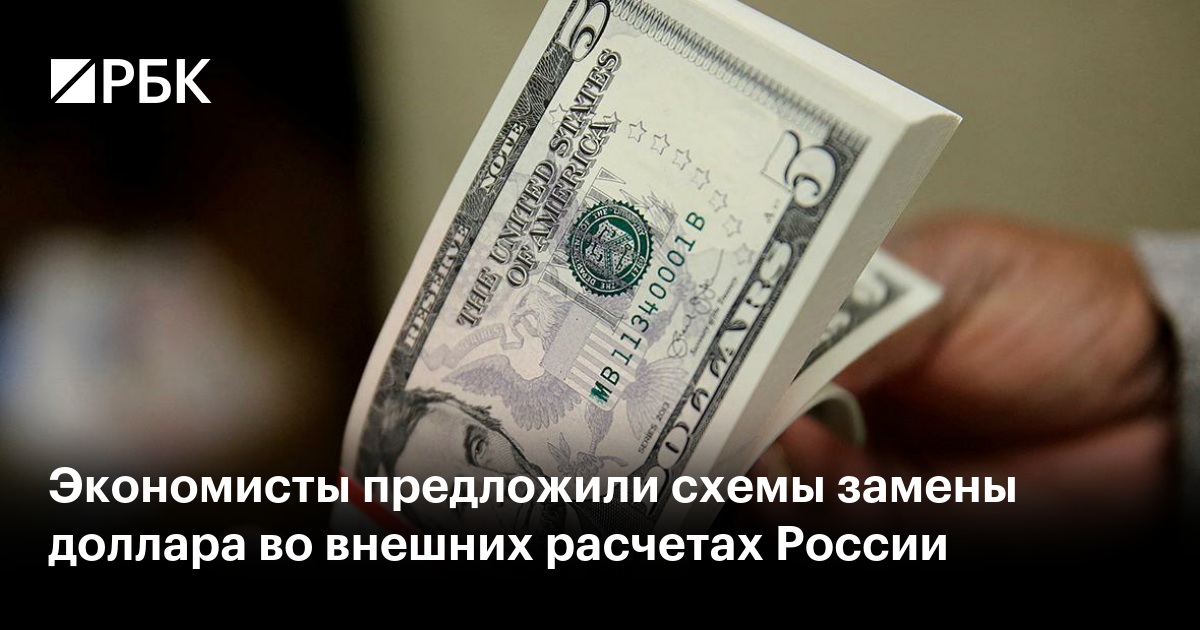
Экономисты предложили схемы замены доллара во внешних расчетах России
Заменить токсичные для России доллары и евро в международных расчетах можно целым рядом альтернативных моделей. Среди них — криптовалюты, наднациональная единица, цифровой «золотой рубль». Плюсы и минусы схем описали эксперты ВЭБа
Economists have proposed schemes to replace the dollar in Russia's external settlements, the biggest prospects for expanding payments in rubles and yuan
VEB Institute evaluated alternative dollar and euro settlement models with other countries
A number of alternative models can replace dollars and euros that are toxic to Russia in international settlements. Among them are cryptocurrencies, a supranational unit, a digital "golden ruble". The pros and cons of the schemes were described by VEB experts
Since 2022, the dollar and euro have become toxic for most Russian companies, and non-cash payments even with friendly countries are difficult due to the threat of secondary sanctions and disconnection of Russian banks from the SWIFT system. However, there is a set of alternative models that Russia can potentially use and develop in international calculations. Experts of the Institute of Research and Expertise of VEB (part of the structure of the state corporation VEB.RF) write about this. In the presentation, which was reviewed by RBC, they assessed the advantages and risks of each of the proposed models.
RBC sent requests to the Central Bank and the Ministry of Finance.
...
Cryptocurrencies and tokens
This method is not suitable as a system solution for international settlements, however, it can be used as a local means of payment for some transactions. There are examples: in 2022, a partnership was established between the Dubai Multi Commodities Centre free Economic Zone and ComTech FZCO in the UAE to issue tokens secured by gold bars stored in this zone in the blockchain network. For Russia, such a model makes it possible to accumulate unauthorized gold produced outside the Russian Federation, or to sell Russian gold to Arab companies that tokenize it, the VEB Institute notes.
Among the risks of cryptocurrencies are high volatility and regulatory pressure, the institute writes. The Russian authorities have not yet allowed the use of cryptocurrencies for external settlements, although business, as stated in the report of the Presidential Commissioner for the Protection of Entrepreneurs' rights, considers it "extremely urgent" to form a regulatory framework for the turnover of cryptocurrencies for settlements with foreign counterparties.
Digital "golden ruble"
VEB experts are also considering a scheme with a means of payment in the form of a stablecoin issued by Russia under the security of gold from its international reserves. They call the advantage of such a digital "golden ruble" liquidity, accessibility, ease of use in calculations, absence of issuer risks, relatively low volatility and low costs for participants in international trade.
As the reserves of monetary gold increase, including through purchases of it within the country, it is possible to increase the issue of the "golden ruble". The difference in the exchange rates of the "golden ruble" for the domestic market and international trade will help smooth out the impact of foreign economic shocks on the pace of development of the Russian economy. However, the implementation of the tool requires the development of a regulatory framework. "Without the active actions of the Bank of Russia, the golden ruble is unlikely to be able to gain international recognition," the authors write.
Anatoly Aksakov, the head of the State Duma Committee on the Financial Market, said in January that Russia could issue stablecoins backed by gold in order to conduct international settlements: this issue was discussed at a meeting of parliamentarians with a delegation from Iran. ..."
***
Russia through the hidden eye
Chamber of Commerce and Industry of the Russian Federation https://news.tpprf.ru/ru/opinion/3874446/ Ilya Zubkov: ESG agenda and sustainable business development are still relevant 17.11.2022 The Chamber of Commerce and Industry of the Russian Federation continues to pay increased attention to...
Дмитрий Чернышенко и Бёрге Бренде подписали меморандум о создании в России Центра четвёртой промышленной революции
Правительство Российской Федерации и Всемирный экономический форум подписали меморандум о создании в России Центра четвёртой промышленной революции. Мероприятие прошло в Координационном центре.
October 13, 2021
...
"
Dmitry Chernyshenko added that the center will be created on the basis of the ANO "Digital Economy". A corresponding agreement has also been signed between the autonomous non-profit organization and the WEF.
"We are pleased to join the global network of centers of the fourth industrial revolution. Our organization unites the leading digital companies in Russia. Together with their leaders, we will study and adapt the best international practices in the field of artificial intelligence, the Internet of Things, data regulation and other promising areas of digital economy development, as well as promote Russian practices to other countries," commented Evgeny Kovnir, CEO of ANO Digital Economy.
The Center of the Fourth Industrial Revolution will allow building systematic collaboration and constructive dialogue between Russian IT companies, state and international structures, as well as expert communities from around the world.
The Deputy Prime Minister also noted that the center will begin its work on October 15. Its key tasks for the next two months will be the formation of the executive committee and the preparation of a work plan for 2022."
[**And. by the way, also:
Дмитрий Чернышенко: Миллиард устройств интернета вещей к 2025 году – ключевая цель стратегии АНО «Цифровая экономика»
Заместитель Председателя Правительства России, председатель набсовета АНО «Цифровая экономика» Дмитрий Чернышенко в Координационном центре провёл заседание наблюдательного совета АНО «Цифровая экономика». На нём была утверждена стратегия деятельности организации до 2024 года.
October 14, 2021
Deputy Chairman of the Government of Russia, Chairman of the Supervisory Board of the ANO "Digital Economy" Dmitry Chernyshenko held a meeting of the Supervisory Board of the ANO "Digital Economy" in the Coordination Center. It approved the strategy of the organization's activities until 2024.
The members of the Supervisory Board also agreed on the principles of joint work and identified priority projects for implementation – communications, the Internet of Things, artificial intelligence and other areas.
...
According to the draft of the new strategy, the work of ANO "Digital Economy" will be carried out in five main areas: "Digital transformation of industries and companies", "Safe open infrastructure", "Personnel for the digital economy", "Effective regulation" and "WEF and international cooperation"."
"The Centre for the Fourth Industrial Revolution Russia will be hosted by ANO Digital Economy in Moscow. It will work across the global network to maximize the benefits of technologies such as Artificial Intelligence and Internet of Things, while minimizing its risks."
To date:
To date: Centres for the Fourth Industrial Revolution in India, Brazil and South Africa (and in BRICS friends Saudi Arabia and UAE), and WEF Office in Beijing. Without nothing in Russia.
**

ANO "Digital Economy" is the main platform for interaction between business and the state for the development of the digital economy in Russia.
The activities of ANO "Digital Economy" are focused on areas that meet the current challenges of the development of high-tech sectors of the Russian economy.
We are analytics and research, an ecosystem of business support, staffing, promotion of technologies and solutions, elimination of problems of applicability of digital technologies, a national platform for supporting digital transformation."
~~
Zero (0) results of search "WEF", and only one result of search "World Economic Forum":

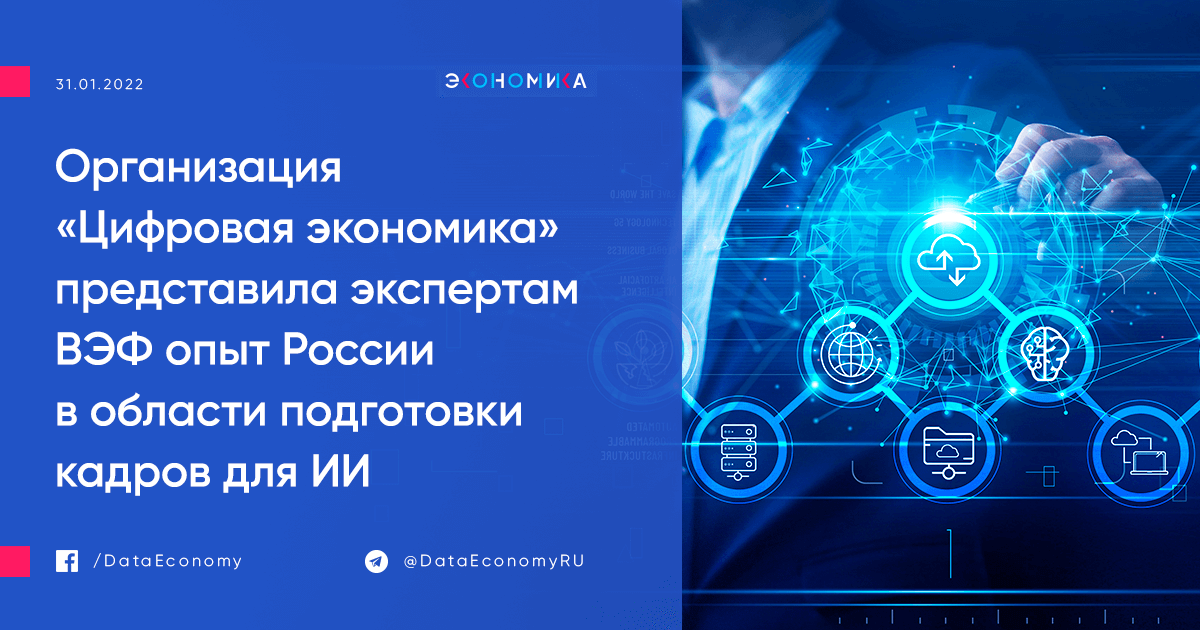
Организация «Цифровая экономика» представила экспертам ВЭФ опыт России в области подготовки кадров для искусственного интеллекта
26 января 2022 года состоялось заседание международной группы экспертов в области Национальных стратегий по искусственному интеллекту в рамках сети Центров четвертой промышленной революции Всемирного экономического форума

On January 26, 2022, a meeting of the international group of experts in the field of National Strategies for Artificial Intelligence was held within the network of Centers of the Fourth Industrial Revolution of the World Economic Forum (The C4IR peer group on National AI Strategy, World Economic Forum).
The meeting was devoted to the exchange of experience and best practices in training personnel for artificial intelligence in the framework of the implementation of national strategies. Specialists from Russia and Turkey presented their strategies.
Alexey Sidoryuk, Director of Artificial Intelligence, presented the key elements of the National Strategy for the Development of Artificial Intelligence in Russia related to training, as well as the Federal Artificial Intelligence Project, part of the national program "Digital Economy of Russia".
Mikhail Burtsev, Head of the Laboratory of Neural Systems and Deep Learning at MIPT and Director of Fundamental Research at the Artificial Intelligence Research Institute (AI), spoke about practical approaches and cases in the field of education, and also noted the achievements of teams from Russia at international competitions and conferences.
During the discussion, the experts of the World Economic Forum network highly appreciated the initiatives and projects of Russian colleagues aimed at training personnel for artificial intelligence. Special attention was paid to the educational project "Lesson of Numbers", implemented by ANO "Digital Economy" in partnership with leading technology companies in Russia. According to the participants, this approach is a unique and effective tool for introducing students of different ages to artificial intelligence technologies.
31.01.2022""
~
11 results, when WEF is written in Russian. 3 for "C4IR", and 10, when it is written on russian.
Here's the same news about the opening of the C4IR, with another cool photo, for a change:
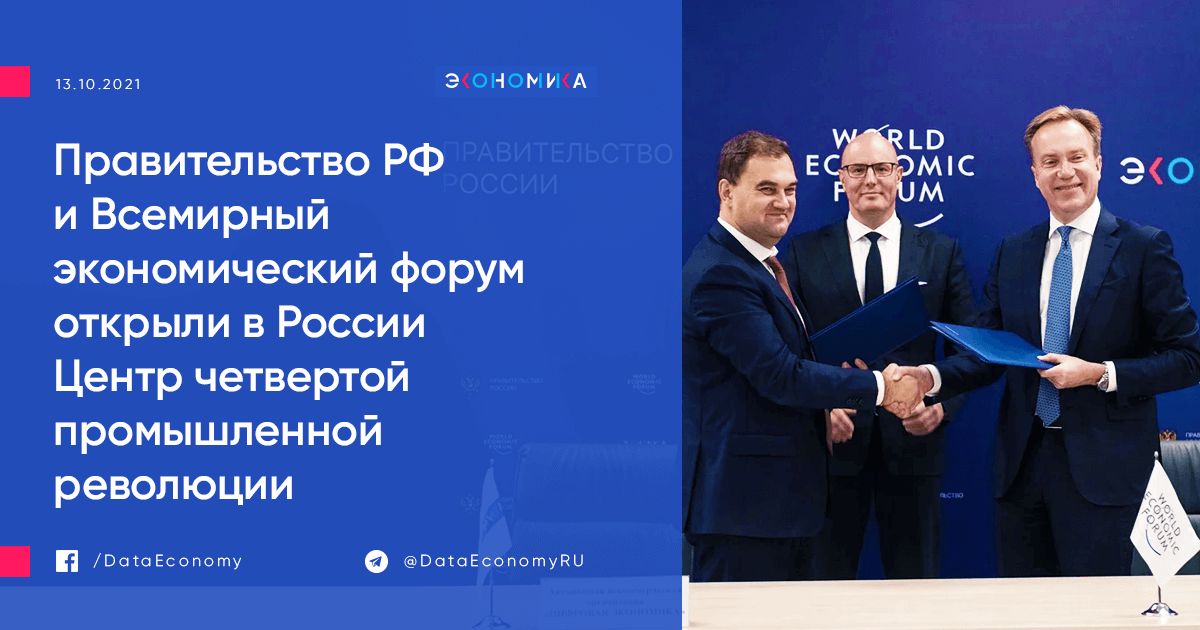
Правительство РФ и Всемирный экономический форум открыли в России Центр четвертой промышленной революции
13 октября 2021 года состоялось подписание меморандума о создании в России Центра четвертой промышленной революции.

~~
Anyway, details.

АНО «Цифровая экономика» на ПМЮФ-2023: “Сценарии применения искусственного интеллекта в здравохранении - от прогнозной аналитики до развития технологий mHealth”
11 мая стартовал Петербургский международный юридический форум – крупнейшая площадка для диалога между представителями юридического, предпринимательского, политического и правоохранительного сообществ

On May 11, the St. Petersburg International Legal Forum started – the largest platform for dialogue between representatives of the legal, business, political and law enforcement communities on issues of law in the interests of citizens, business, improving law enforcement practice, promoting legislative initiatives to develop legal culture and regulate the socio-economic sphere in modern conditions.
A session "Artificial Intelligence in healthcare" was held within the framework of the forum.
...
Experts recalled that artificial intelligence should be massively implemented in all sectors of the economy, including healthcare, over the next 10 years. The regulatory framework for the registration of medical technologies using artificial intelligence has been formed in the Russian Federation. So, currently 21 medical devices with artificial intelligence are registered, 5 are under registration.
...
The Director of Analytics of ANO "Digital Economy" Karen Ghazaryan highlighted the main conclusions of the report "Effective domestic practices based on artificial intelligence technologies in healthcare". This analytical report tells about domestic AI solutions in the field of healthcare, thereby stimulating their further dissemination and implementation. In the process of compilation, information was collected on more than 100 solutions, of which 46 were selected as part of expert discussions to be added to the final material.
Karen Ghazaryan recalled that the report continues the cycle of analytical materials of the ANO "Digital Economy", dedicated to the introduction of artificial intelligence technologies in industries. The materials of the cycle are created in the format of a case book (journal of best practices), with practices of using artificial intelligence technologies in Russia, which have already proven a positive effect and are available on the organization's website.
Based on the conclusions of the report, Karen Ghazaryan noted: "Russia today is one of the world leaders in the development and implementation of artificial intelligence in healthcare, so AI-based technologies can and should be actively used in this area, but for this, in turn, it is necessary to systematically remove regulatory barriers and provide access to the necessary data, as was noted by colleagues during the discussion today. According to the estimates of the National Center for the Development of Artificial Intelligence under the Government of the Russian Federation, 16% of healthcare organizations are already implementing artificial intelligence technologies. Obviously, we cannot stop there - in our report we have identified several scenarios for the use of AI in medicine: from predictive analytics and the development of new drugs, to the development of mHealth technologies and the use of computer vision for the analysis of medical images."
11.05.2023"
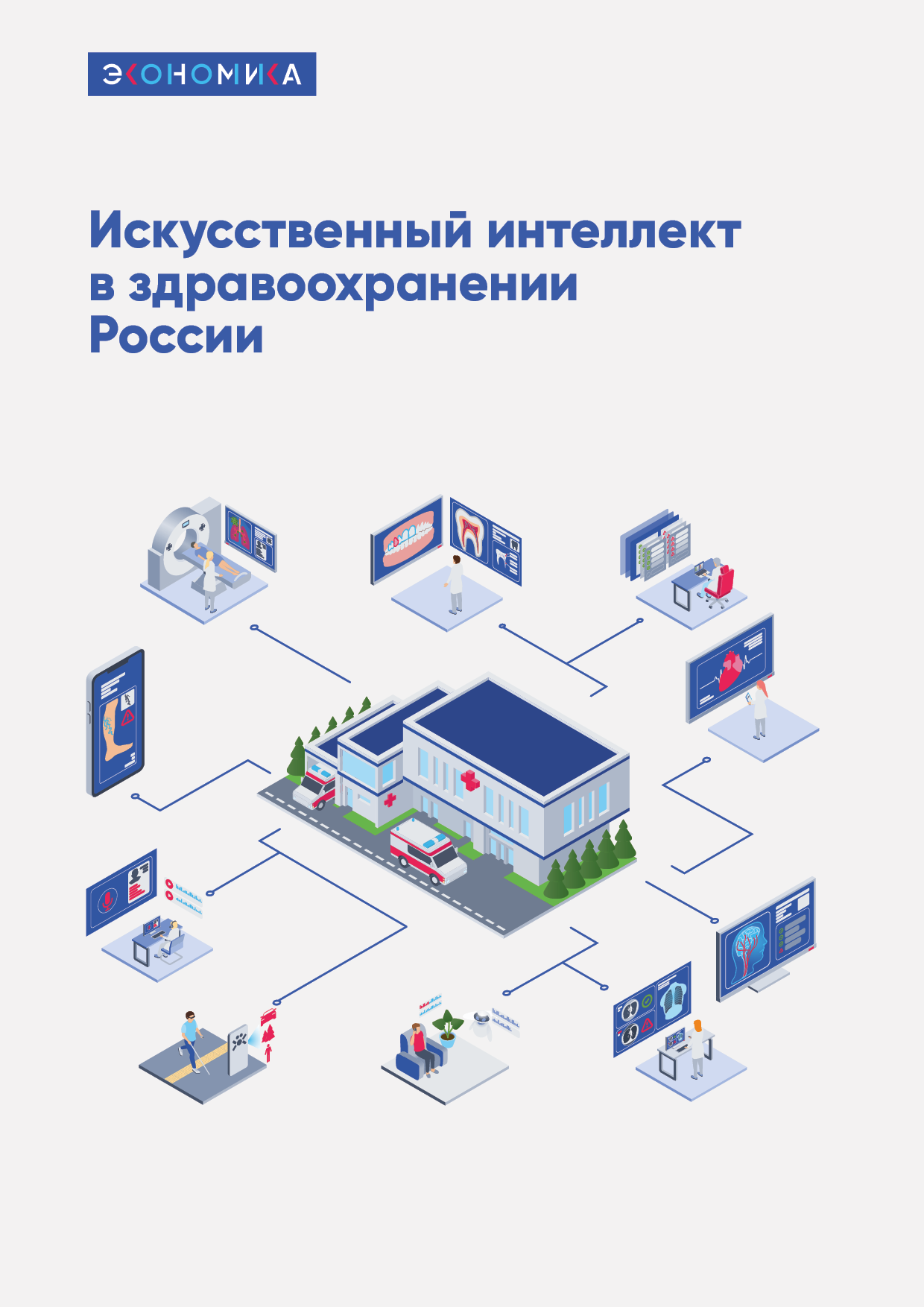

АНО «Цифровая экономика» представила исследование «Эффективные отечественные практики на базе технологий искусственного интеллекта в сельском хозяйстве»
Материалы исследования включают в себя анализ успешных кейсов применения ИИ в сельском хозяйстве России, выявление трендов применения технологий ИИ

The research materials include an analysis of successful cases of AI application in agriculture in Russia, identification of trends in the use of AI technologies, a list of processes in which AI solutions can be applied, as well as a description of the ecosystem of AI development in agriculture in Russia.
...
The study showed that in terms of the use of AI in agriculture in Russia, trends such as the development of precision agriculture, crop production with a controlled environment, the use of predictive analytics and Bigdata, the introduction of robotic agricultural machinery and unmanned aerial vehicles are more evident. To a lesser extent, trends are manifested for the introduction of specialized agrofintech solutions and the development of biotechnologies with AI.
...
"Currently, large agricultural holdings are already using technologies and digital products with artificial intelligence in their activities — crop management and harvesting, satellite monitoring of agricultural land, management systems for agricultural enterprises, agricultural machinery and others. In order to replace foreign developments and increase the availability of such technologies, the Ministry of Agriculture of Russia has formed an industry committee of the agro-industrial complex and created 3 industrial competence centers in the sub-sectors "Crop Production", "Animal Husbandry" and "Food and Processing Industry". In addition, the Ministry of Agriculture of Russia provides state support for the purchase and implementation of software products (including artificial intelligence algorithms) for digitalization of production and processing of agricultural products," comments Elena Fastova, Deputy Minister of Agriculture of the Russian Federation.
"In the current conditions, business has quickly adapted and realized that artificial intelligence is no longer the technology of the future, not an exclusive product, but a necessary reality. Something that already allows you to remain competitive and efficient. Our task as a state is to ensure the large-scale introduction of artificial intelligence technologies in all sectors of the economy. The agricultural sector is no exception. In the course of the conducted at the end of 2022 The strategic sessions revealed a great potential for using AI in the industry and obtaining corresponding effects in the future," says Maxim Kolesnikov, Deputy Minister of Economic Development of the Russian Federation.
"Artificial intelligence in agriculture is a powerful tool that combines advanced technologies and methods of big data analysis to make effective decisions at all stages of crop production and animal husbandry. Today we see a large number of domestic solutions that have proven a business effect and are ready for replication in the industry. The use of AI in agriculture leads to more efficient and economical use of resources, increased yields, and improved quality of products," said Grigory Borisenko, Deputy Minister of Digital Development, Communications and Mass Communications of the Russian Federation.
"As of the end of 2022, we see that Russia is significantly lagging behind the leading countries in terms of the introduction of artificial intelligence technologies in industries, despite the fact that we have our own technologies and solutions that are not lagging behind foreign ones. In this report, we have collected the best practices for the introduction of AI in agriculture, worked out in detail the effects of using AI and hope that this will create an additional incentive for the development of AI in agriculture," comments Alexey Sidoryuk, Director of the Digital Transformation of Industries, ANO Digital Economy
"The study of the ANO "Digital Economy" presents the main trends in the introduction of AI technologies in agriculture in Russia and the world, and also describes the most successful cases of the introduction of AI at agricultural enterprises in Russia. All promising practices of using artificial intelligence in agriculture in the report are attributed to various processes covering the full cycle of activity of an agricultural organization. One of the significant effects, especially in the field of agriculture, is the automation of many routine processes and more efficient implementation of large projects without the use of heavy manual labor. The fulfillment of these tasks is possible with the help of smart crop and livestock farms, through the introduction of smart veterinary systems. I am sure that this report will help many enterprises and representatives of both small and large and medium—sized businesses to make their work processes more efficient," comments Karen Ghazaryan, ANO Digital Economy.
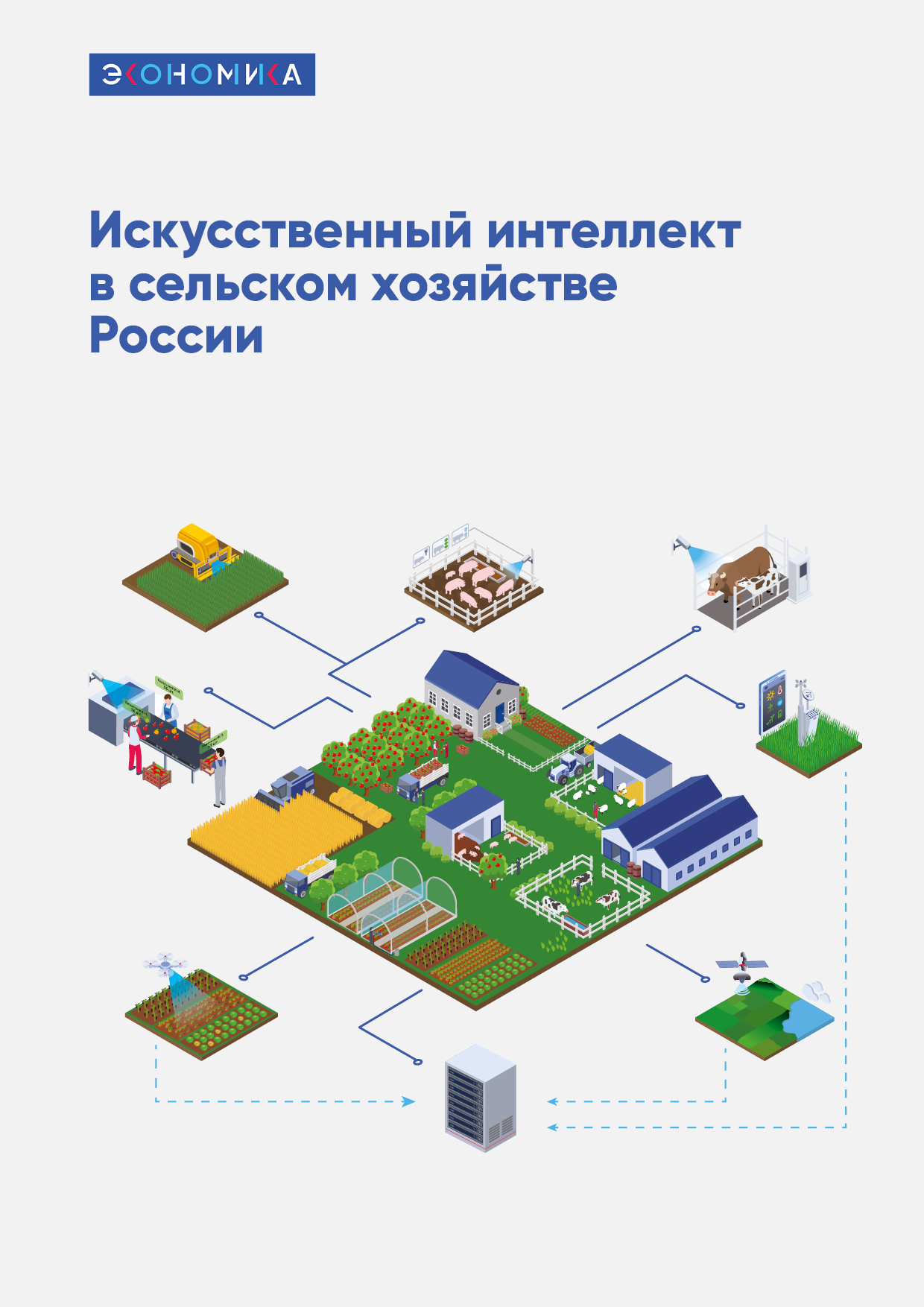
Map of effective practices for the use of artificial intelligence in retail
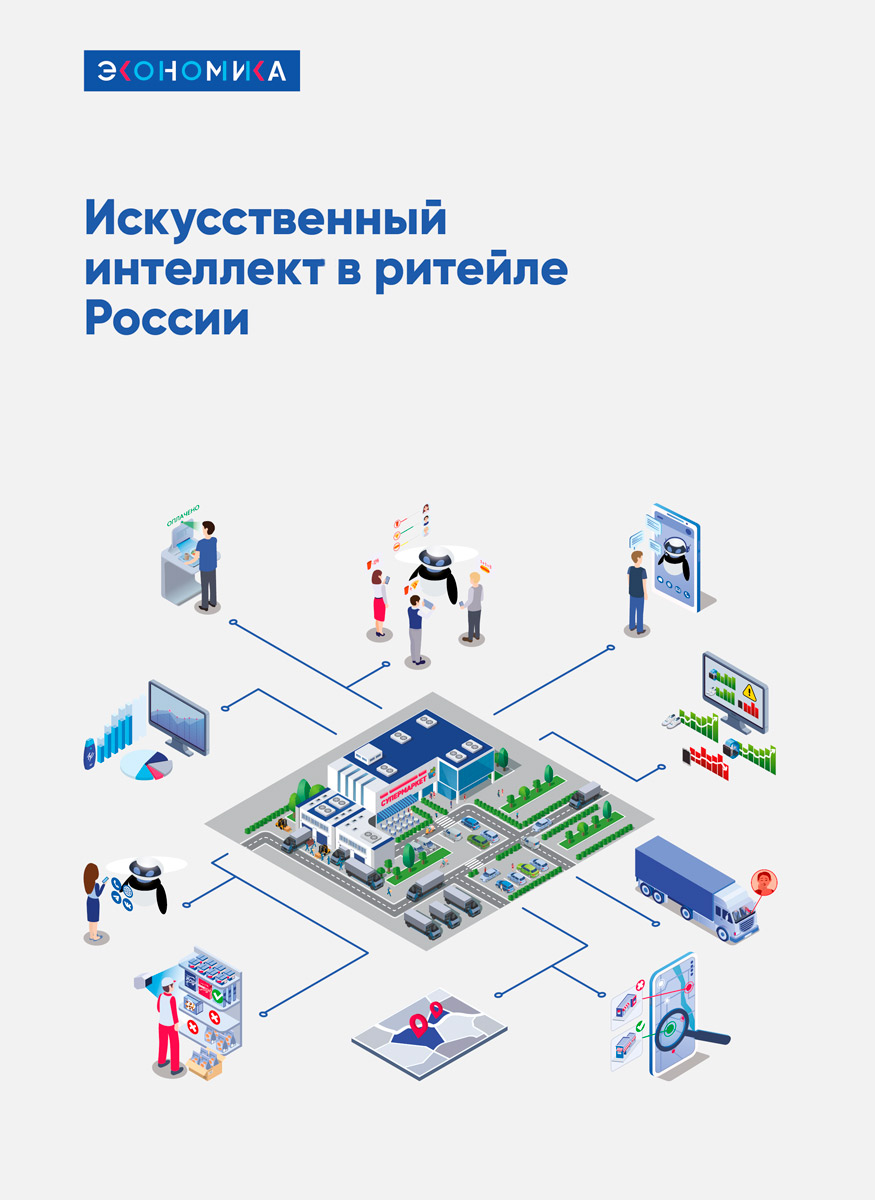
The analytical direction of ANO "Digital Economy" implements its own and partner analytical and research projects in the field of digital technologies, economics, international experience and regulatory policy. This section presents the most relevant thematic reports of the Organization's analysts."
With a few clicks on "see all" you get to the end of the materials. And there, as the last material (i.e. - the first in date) is: "The path to advanced data-driven manufacturing", dated 31.01.2020. When I click on it, I go here:
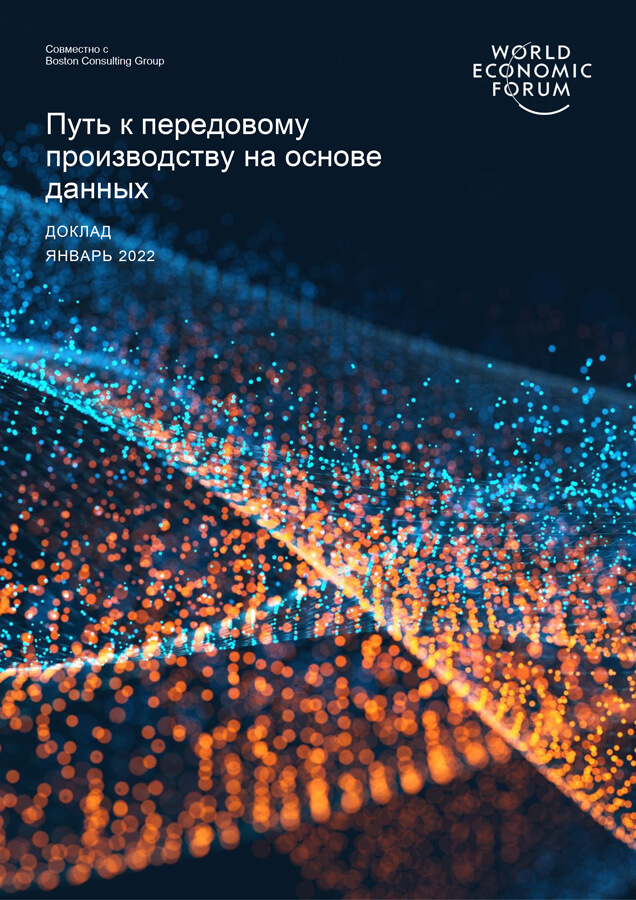
Путь к передовому производству на основе данных
Настоящий отчет охватывает передовые практики и ключевые тенденции развития компаний на пути к эффективной работе с данными.

(The picture says: "The path to advanced data-driven manufacturing. Report January 2022")
This report covers best practices and key trends in the development of companies on the way to effective work with data.
Today, one of the greatest strategic opportunities in the field of production is to master the mastery of production data processing, i.e. to use data and advanced means of their analysis to increase productivity, improve customer experience and have a positive impact on society and the environment.
The transition to hyper-connected value creation networks has already begun: manufacturing companies and supplier companies are jointly developing information applications for managing the production and distribution of goods outside the same company. And given that the uncertainty in the economy and in the world caused by global trends such as climate commitments and constant supply chain disruptions is likely to persist for some time, innovative ways of using data in production can become a stabilizing factor for global industry.
This report presents the information collected to date as part of the multi-year initiative "Unlocking Value in Manufacturing through Data Sharing" (Unlocking Value in Manufacturing through Data Sharing), launched in 2019 on the Platform for Shaping the Future of Promising production Technologies and Value Chains of the World Economic Forum jointly with Boston Consulting Group (BCG).
The aim of this initiative is to support manufacturing companies and supplier companies on their way to creating globally connected production data ecosystems.
Read the report >> https://c4ir.ru/wp-content/uploads/2022/04/the_data_driven_journey_final_ru.pdf
(Again Report January 2022)
**
They're just wrong, we're human, we make mistakes. However, let's check with the site of the now defunct site of the Center of the Fourth Industrial Revolution in Russia.
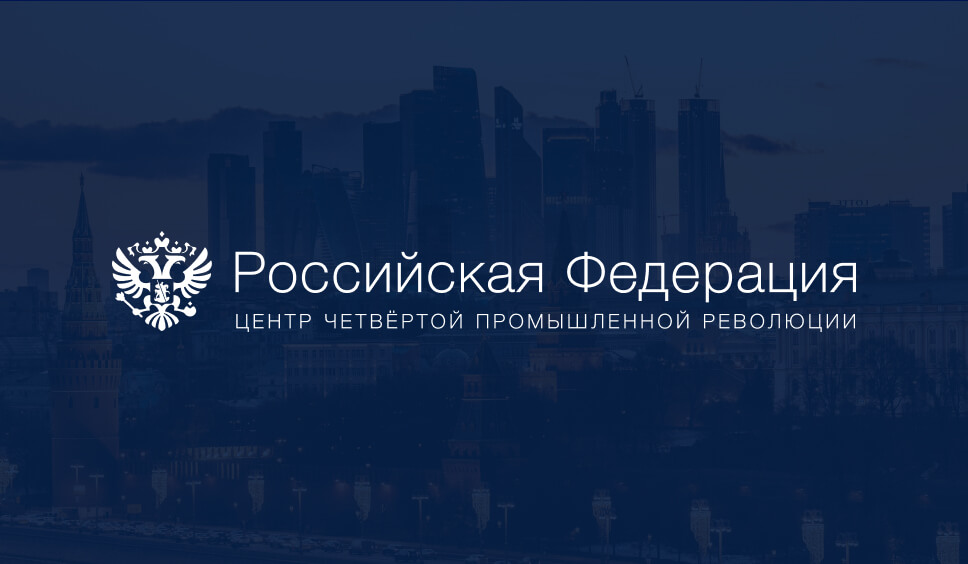
Центр четвертой промышленной революции в России
Пространство для сотрудничества государственного и частного секторов в целях использования технологий для достижения социального и экономического прогресса.

The centers of the Fourth Industrial Revolution are a space for cooperation between the public and private sectors in order to use technology to achieve social and economic progress."
Buttons for "C4IR in RF"

О центре — c4ir.ru
Пространство для сотрудничества государственного и частного секторов в целях использования технологий для достижения социального и экономического прогресса.
The first industrial revolution used the energy of water and steam to mechanize production. The second has established mass production at the expense of electricity. The third used electronics and information technology to automate production. Now, on the basis of the third industrial revolution, the fourth is taking place. It is characterized by the influence of new technologies that actively affect the physical and digital world.
There are three reasons why today's transformations represent not only an extension of the third industrial revolution, but also the onset of the fourth, and completely independent: speed, scale and impact on various systems. There are no examples of such breakthrough development rates in history. Compared to previous industrial revolutions, the fourth is developing not at a linear, but exponential pace. Moreover, it radically changes almost all industries in different countries of the world. And the breadth and depth of these changes portend a radical transformation of production, management and management systems."
And (in right) to C4IR in WEF site:
"Last news" in the bottom, the last (in left) is: "15.4.2022 The Executive Committee of the Center for the Fourth Industrial Revolution in Russia held its second meeting". After clicking in her:

Исполнительный комитет Центра четвёртой промышленной революции в России провел второе заседание — c4ir.ru
Деятельность Центра четвертой промышленной революции в России приостановлена с 1 марта 2022 года в связи с изменившимися условиями.
15.4.2022
The activity of the Center of the Fourth Industrial Revolution in Russia has been suspended since March 1, 2022 due to the changed conditions."
"Reports":

Доклады — c4ir.ru
Пространство для сотрудничества государственного и частного секторов в целях использования технологий для достижения социального и экономического прогресса.
On the bottom: "The path to advanced data-driven manufacturing ":

Изменение подходов к обороту данных: переосмысление подходов к порядку уведомления и получения согласия на обработку данных — c4ir.ru
Всемирный экономический форум совместно с центром Интернета и общества Стэнфордского университета и экспертным сообществом провели ряд круглых столов о проблемах регулирования порядка получения уведомления и согласия на обработку данных. Цель проведения таких круглых столов заключается в том...

01.7.2020
The World Economic Forum, together with the Stanford University Center for Internet and Society and the expert community, held a series of round tables on the problems of regulating the procedure for obtaining notification and consent to data processing. The purpose of such round tables is to organize a discussion on the possibility of changing the approach to regulating data processing.
This document is a joint work of experts participating in a series of round tables in San Francisco, as well as the expert community in the field of technology, science and citizens. Although in this paper the regulation of data processing in the USA is considered as an example, the procedure for obtaining notification and consent as a regulatory mechanism is investigated more generally. The report also provides a number of recommendations for updating existing approaches to obtaining notification and consent for both legislators and technology companies.
By offering alternative measures to regulate the procedure for receiving notification and consent to data processing, we hope that an open community will appear to solve today's and future most pressing problems arising in the field of personal data. At the same time, the expansion of citizens' rights and technological capabilities should be based on a solid legal foundation.
[Date 01.07.2020]
In right:
Download the report:
https://c4ir.ru/wp-content/uploads/2022/04/wef_chief_economists_outlook_november_2021_ru.pdf
"Centre for the New Economy and Society
Chief Economists
Outlook
November 2021
This quarterly briefing builds on the latest policy research as well as consultations and surveys with leading Chief Economists from both the public and private sectors, organized by the World Economic Forum’s Centre for the New Economy and Society.
It aims to summarize the emerging contours of the current economic environment and identify priorities for further action by policymakers and business leaders in response to the global economic crisis triggered by the COVID-19 pandemic."
~~
**

Исполнительный комитет Центра четвёртой промышленной революции в России провел второе заседание — c4ir.ru
Деятельность Центра четвертой промышленной революции в России приостановлена с 1 марта 2022 года в связи с изменившимися условиями.
~~
Back to ANO Digital Economy / reports -> last 3 at bottom, the same report (and the same picture of cover):
"Changing approaches to data turnover: rethinking approaches to the procedure for notification and obtaining consent to data processing
The World Economic Forum, together with the Stanford University Center for Internet and Society and the expert community, held a series of round tables on the problems of regulating the procedure for obtaining notification and consent to data processing
31.07.2022"
~~

Исполнительный комитет Центра четвёртой промышленной революции в России провел второе заседание — c4ir.ru
Деятельность Центра четвертой промышленной революции в России приостановлена с 1 марта 2022 года в связи с изменившимися условиями.
~~
The last (in the middle) of the three last (i.e. first by date) reports in the ANO Digital Economy:
"Changing approaches to personal data turnover: rethinking consent to processing
The authors of the report propose to consider alternative approaches to regulating the procedure for notification and obtaining consent for data collection and processing. Each of the proposed ideas is designed to solve existing problems in the field of personal data.
28.02.2022"
Click:
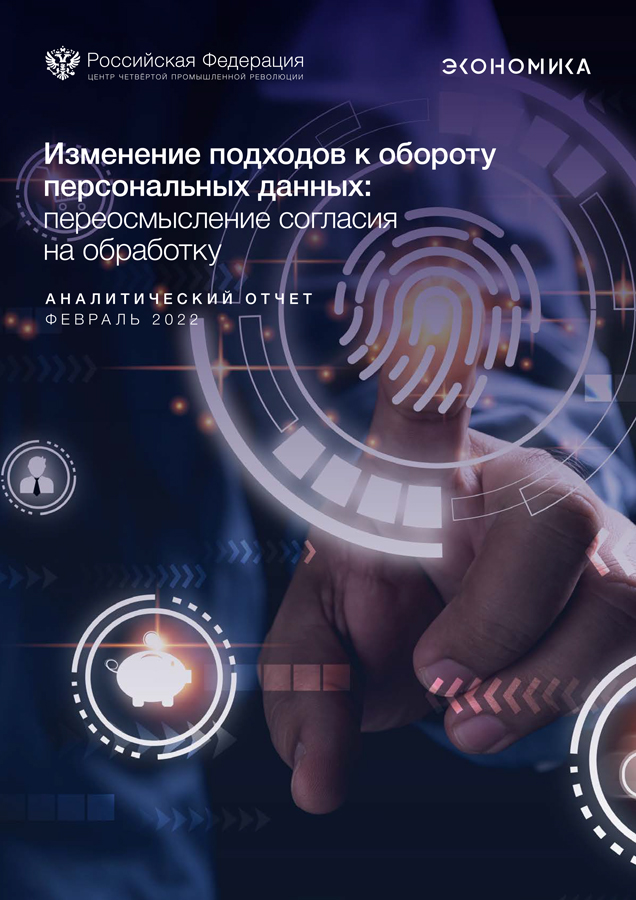
[February 2022]
"The starting point for the preparation of this document is a report developed by WEF experts together with the Center for Internet and Society at Stanford University on the topic "Changing approaches to data turnover: rethinking approaches to the procedure for notifying and obtaining consent to data processing in the interaction of humans and technologies."
To discuss the report prepared by the WEF, as part of the work of the Center for the Fourth Industrial Revolution in Russia, a round table on the topic "Changing approaches to personal data turnover" was organized on January 27, 2022 at the site of the ANO "Digital Economy", at which experts, representatives of authorities and the business community spoke about the prospects of the proposed ideas. The discussion was attended by deputy heads of the Ministry of Finance of Russia and Roskomnadzor, as well as experts from Russia, the USA, India and Finland.
The ideas expressed by the experts at the round table are reflected in this document as alternative approaches to data regulation. In addition to the issues raised in the report and at the round table, it is proposed to start a discussion on how the existing mechanisms for obtaining consent for data collection and processing comply with economic principles and to what extent the current regulation reflects the economic value of data.
Read the report >> https://c4ir.ru/wp-content/uploads/2022/04/wef_agreement_ru.pdf "
~~

Исполнительный комитет Центра четвёртой промышленной революции в России провел второе заседание — c4ir.ru
Деятельность Центра четвертой промышленной революции в России приостановлена с 1 марта 2022 года в связи с изменившимися условиями.
~~
In C4IR dot Ru:

Изменение подходов к обороту персональных данных: переосмысление согласия на обработку — c4ir.ru
Авторы доклада предлагают рассмотреть альтернативные подходы регулирования порядка уведомления и получения согласия на сбор и обработку данных. Каждая из предложенных идей призвана решить существующие проблемы в области персональных данных.
*****
Nothing, nothing. Just to say.
Last edited:





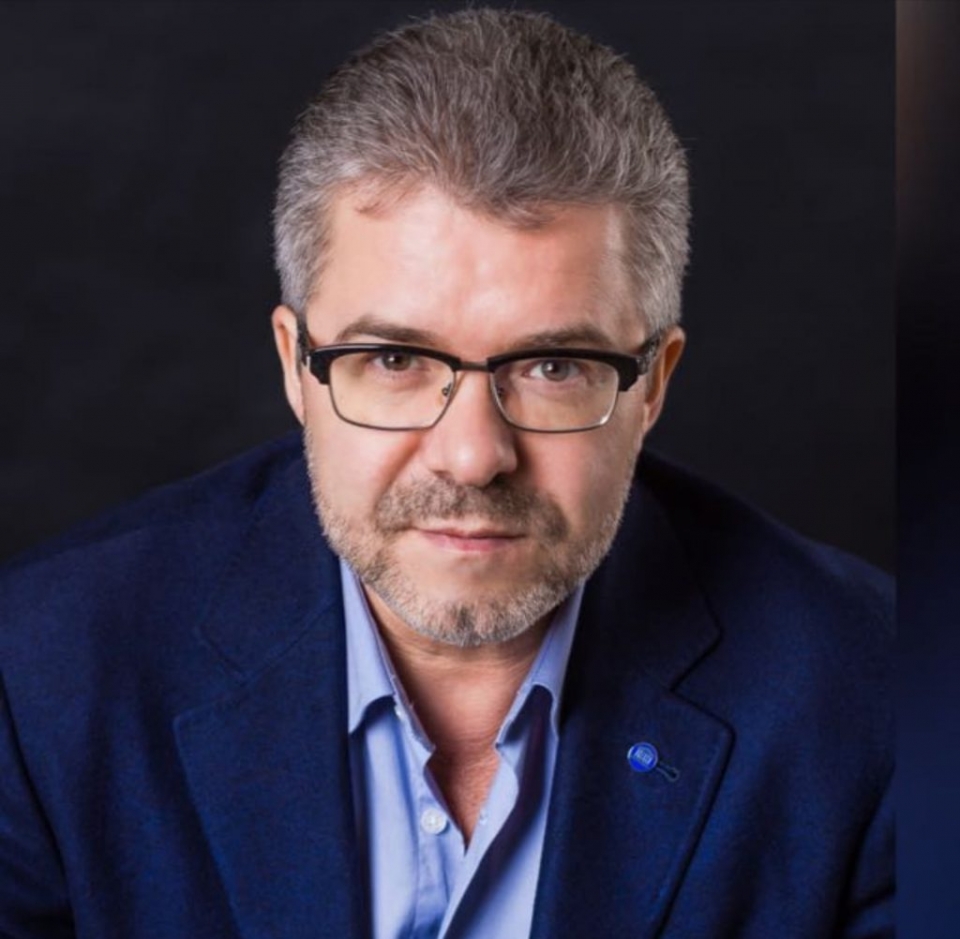








.jpg)




.jpg)







